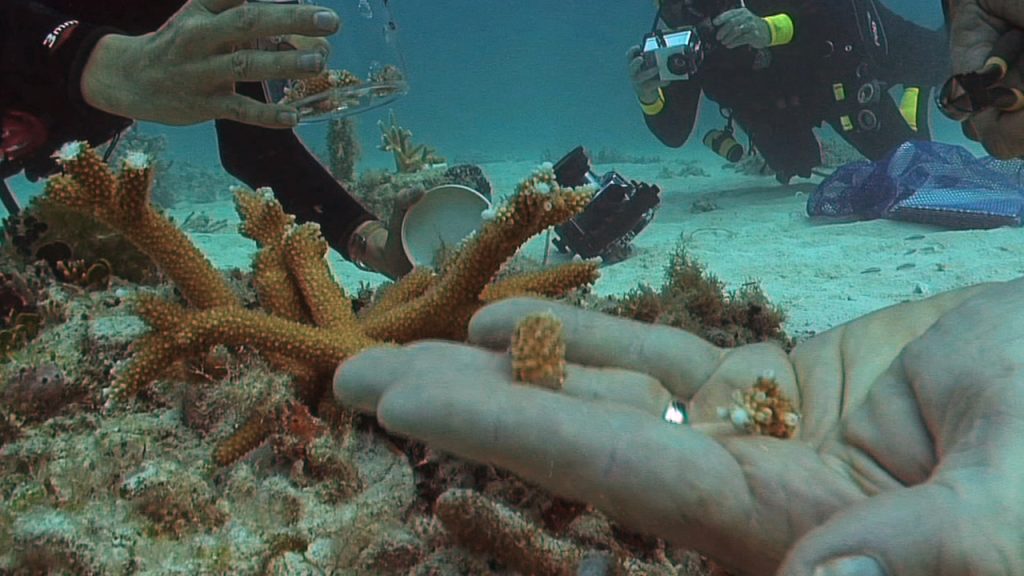
Where We Stand:
Coral reefs in the United States provide many benefits, including biodiversity, coastal protection, improved fisheries, medicine, and critical tourism and recreational opportunities. Florida’s coral reef runs parallel to our coastline from Monroe County north to Martin County. It is a valuable national resource that protects our shores and beaches by reducing wave energy from storms and hurricanes while providing flood protection valued at over $675 million per year and over $1 billion during extreme weather events. Florida’s coral reef ecosystem provides vital marine habitat for over 6,000 species, including species found nowhere else on earth. Florida’s coral reef ecosystem is essential to the state’s commercial fishing and tourism industries, providing over 71,000 jobs within the region, and generating more than $6 billion in positive impact annually.
Unfortunately, the Florida’s coral reef is suffering from a tremendous disease outbreak that threatens its survival, with 90 percent of the reef impacted. The Restoring Resilient Reefs Act will modernize the Coral Reef Conservation Act of 2000 and direct a large share of federal funding directly to states and impacted communities so that management priorities and conservation and restoration activities are locally driven; enhance collaboration and provision of technical assistance and expertise to support state and local initiatives; sustain critical research and create opportunities for new partnerships; reform reporting, measurement, and analysis procedures to increase the efficacy of coral reef interventions; and create new avenues for the provision of emergency funds to ensure rapid, effective responses to coral reef emergencies.
The bipartisan Restoring Resilient Reefs Act (RRRA, H.R. 160 and S. 46), introduced by Rep. Darren Soto (D-Orlando) and Sen. Marco Rubio (R-FL), is an essential and overdue update to the Coral Reef Conservation Act of 2000 that will meaningfully enhance the protection of these unique ecosystems that underpin significant cultural, social, and economic interests within the United States. The RRRA will give new tools to non-federal partners, who are closest to the coral crisis, including states, territories, tribes, communities, and universities, allowing for emergency grants and an energy fund for coral disasters. The legislation also creates a block grant program where states and territories can receive federal funds to incentivize increased state and local investment in coral reefs.
The U.S. Senate passed the RRRA via unanimous consent during the 116th Congress, and most recently, the Senate Commerce Committee approved the RRRA in 2021. A version of the RRRA passed the U.S. House earlier this year as part of the American COMPETES Act. Southeast Florida needs the bill to pass both the House and Senate before the end of this year to become law, Florida’s corals are dying and the status quo is not feasible.
What We Want:
The Greater Fort Lauderdale Chamber of Commerce supports the bipartisan Restoring Resilient Reefs Act (RRRA, H.R. 160 and S. 46) and urges Congress to pass the legislation as a matter of urgency.